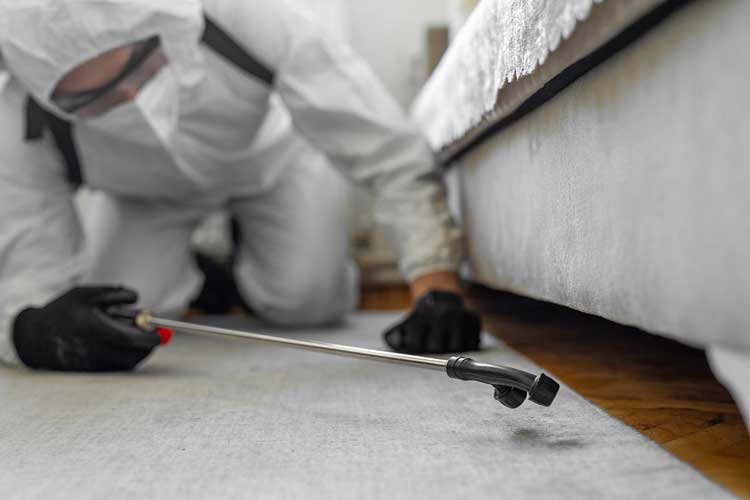Minimizing Pesticide Risks
Last updated November 2024

The dangers of most pesticides are minimized via correct application. The Environmental Protection Agency (EPA) has banned certain chemicals, and allows others to be applied only by professionals—and even then only under specified conditions.
Still concerned about pesticide exposure? Check the EPA’s Pesticide Selector database (just search for the name of the pesticide or chemical and the word “safety”). If you find a notice that an EPA review is underway—or that researchers or citizens’ groups are urging one—it’s a red flag.
If you turn to a pro, you get some protection from the certification and licensing standards established by states in response to federal requirements.
For additional protection, observe the following important practices:
Pay close attention to pesticide labels. Labels tell you:
- What protective clothing and equipment to use.
- How to use the pesticide safely and effectively—when to apply it, where to apply it, how much to apply, and what pests it will control.
- How to properly dispose of excess chemicals and empty containers.
- When you can reenter an area that has been treated with the pesticide.
- How exposure occurs—whether by inhalation, ingestion, skin contact, or another route.
- How harmful the pesticide can be, expressed by three key words: “danger” (anything from a taste to a teaspoonful can kill humans); “warning” (a teaspoonful to a tablespoonful can kill); and “caution” (an ounce to more than a pint can kill). Avoid pesticides labeled “danger.”
Buy only as much pesticide as you need. Store leftovers in their original containers away from children and pets, ideally in a locked, fireproof place with a warning sign.
Use only the amount specified on the pesticide label.
If you hire professionals, find out exactly what chemicals they are using and have them provide copies of warning labels. This information is vital if poisoning symptoms appear.
In the event of a mishap, call a doctor and/or an ambulance immediately, and take the poison label with you. For quick advice, call the Health Resources & Services Administration (HRSA) Poison Help line at 800-222-1222.


